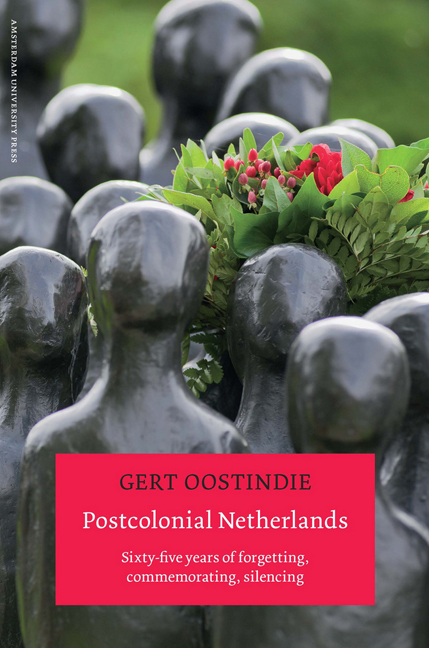Book contents
- Frontmatter
- Contents
- Introduction
- 1 Decolonization, Migration and the Postcolonial Bonus
- 2 Citizenship: Rights, Participation, Identification
- 3 The Struggle for Recognition: war and the Silent Migration
- 4 The Individualization of Identity
- 5 Imagining Colonialism
- 6 Transnationalism: a Turning Tide?
- 7 An International Perspective
- 8 ‘Postcolonial’ (in the) Netherlands
- Notes
- Bibliography
- Acknowledgements
- Index of People, Organizations and Memorial Sites
1 - Decolonization, Migration and the Postcolonial Bonus
Published online by Cambridge University Press: 20 January 2021
- Frontmatter
- Contents
- Introduction
- 1 Decolonization, Migration and the Postcolonial Bonus
- 2 Citizenship: Rights, Participation, Identification
- 3 The Struggle for Recognition: war and the Silent Migration
- 4 The Individualization of Identity
- 5 Imagining Colonialism
- 6 Transnationalism: a Turning Tide?
- 7 An International Perspective
- 8 ‘Postcolonial’ (in the) Netherlands
- Notes
- Bibliography
- Acknowledgements
- Index of People, Organizations and Memorial Sites
Summary
In retrospect, the story of postcolonial migrations to the Netherlands presents itself as three straight-forward series of cause and effect. The independence of Indonesia unavoidably led to the exodus of the groups which had been linked to the colonial regime. The hastily executed ‘model decolonization’ of Suriname inevitably led to the migration of half a nation. The decision to keep the Netherlands Antilles within the Kingdom of the Netherlands meant that Antilleans would continue to settle in the wealthier, European region of the Kingdom.
In reality, decolonization nowhere went according to predetermined planning and Dutch politics was, time and again, surprised by the unforeseen phenomenon of postcolonial migrations. Successive generations of Dutch politicians failed to shine in terms of vision or sense of realism. In this they differed little from their colleagues in neighbouring countries. As psychologically and strategically unprepared for decolonization as the colonial powers were on the eve of, and even following the Second World War, they equally failed to anticipate the scale of the migrations that would write the final chapter in their colonial histories.
This chapter discusses and compares the dominant themes of post-war migrations from the three former Dutch colonies and the patterns of integration that ensued. This history is then placed within the broader context of migration, integration and government policy in the post-war Netherlands. Migrants from the Dutch East Indies/Indonesia, Suriname and the Antilles all had the benefit of a ‘postcolonial bonus’ which, however, has become devalued, little by little, along with the notion of the ‘postcolonial community’.
The term ‘postcolonial’ requires some clarification. In the narrow sense of the word it simply means ‘after the colonial era’, in this case also post-war. Following this, postcolonial migrants came to the Netherlands, which was no longer a colonial metropole and hence now postcolonial itself. Reality was more complicated than that. The Netherlands decolonized in fits and starts and with surprising outcomes. The migrants from the Netherlands East Indies indeed arrived in the Netherlands shortly after decolonization, forced to leave Indonesia or at least convinced that there was no future for them there. The term ‘postcolonial migrants’ fits this otherwise heterogeneous group without further qualification.
- Type
- Chapter
- Information
- Postcolonial NetherlandsSixty-Five Years of Forgetting, Commemorating, Silencing, pp. 23 - 47Publisher: Amsterdam University PressPrint publication year: 2012



